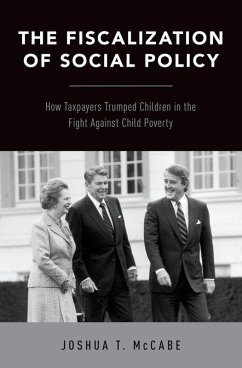In 1970, a single mother with two children working full-time at the federal minimum wage in the US received no direct cash benefits from the federal government. Today, after a period of austerity, that same mother would receive $7,572 in federal cash benefits. This money does not come from social assistance, family allowances, or other programs we traditionally see as part of the welfare state. Instead, she benefits from the earned income tax credit (EITC) and the child tax credit (CTC)-tax credits for low-income families that have become a major component of American social policy. In
The Fiscalization of Social Policy, Joshua McCabe challenges conventional wisdom on American exceptionalism, offering the first and only comparative analysis of the politics of tax credits. Drawing comparisons between similar developments in the UK and Canada, McCabe upends much of what we know about tax credits for low-income families. Rather than attributing these changes to anti-welfare attitudes, mobilization of conservative forces, shifts toward workfare, or racial antagonism, he argues that the growing use of tax credits for social policy was a strategic adaptation to austerity. While all three countries employ the same set of tax credits, child US poverty rates remain highest, as their tax credits paradoxically exclude the poorest families. A critical examination of social policy over the last fifty years,
The Fiscalization of Social Policy shows why the US government hasn't tackled poverty, even while it implements greater tax benefits for the poor.
Dieser Download kann aus rechtlichen Gründen nur mit Rechnungsadresse in A, B, BG, CY, CZ, D, DK, EW, E, FIN, F, GR, HR, H, IRL, I, LT, L, LR, M, NL, PL, P, R, S, SLO, SK ausgeliefert werden.









